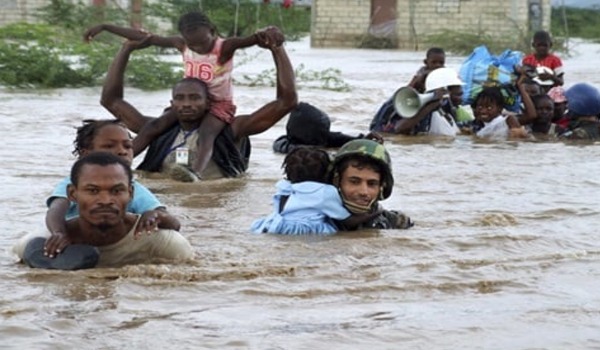50 dead, 700,000 displaced in Somalia flooding
Authorities of Somalia Disaster Management Agency on Tuesday say at least 50 people are dead and 700,000 are now homeless as a result of the severe rain and flooding in Somalia.
“Fifty people died in the disaster… while 687,235 people were forced to flee their houses,” Somali Disaster Management Agency director Mohamud Moalim Abdullahi said at a press briefing on Monday.
“The expected rains between 21st and 24th of November… may cause more flooding which could cause death and destruction,” he added.
The Horn of Africa region is experiencing torrential rainfall and floods linked to the El Nino weather phenomenon, claiming dozens of lives and causing large-scale displacement, including in Somalia, where the downpours have destroyed bridges and inundated residential areas.
People rode donkey carts through floods in Beledweyne, Somalia, after the Shabelle River burst its banks.
On Saturday, the UN humanitarian agency OCHA said the number of people displaced by heavy rains and floods in Somalia “has nearly doubled in one week”, while 1.7 million people overall have been affected by the disaster.
“In addition, roads, bridges and airstrips have been damaged in several areas, affecting the movement of people and supplies and leading to increased prices of basic commodities,” OCHA said.
The Horn of Africa- Kenya, Somalia and Ethiopia is one of the regions most vulnerable to climate change and extreme weather events are occurring with increased frequency and intensity.
The region is emerging from the worst drought in four decades after multiple failed rainy seasons that left millions of people in need and devastated crops and livestock.
British charity Save the Children on Thursday said more than 100 people, including 16 children, had died and more than 700,000 forced from their homes in Kenya due to flash flooding.
The AFP reported that humanitarian organizations are warning of a worsening El Niño situation, urging for immediate international intervention due to its predicted persistence until April 2024.




